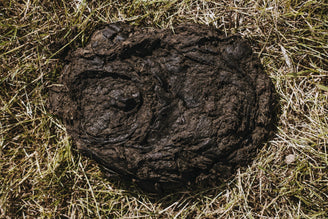Soil health is crucial to the survival and growth of plants, which in turn, plays a significant role in maintaining a healthy ecosystem. However, modern agricultural practices have severely damaged soil health, leading to a decrease in crop yields and environmental degradation.
The founders of Pipers Farm, Peter and Henri Greig, assess the quality of the soil on their farm twice a year - in the Spring and Winter. They use an app called Solimentor to measure water infiltration, root length, and the number of worms in the soil.
By utilising the app's GPS, they can consistently test the same sections of land, giving them a better idea of the overall soil health of the farm.

Why do we measure water infiltration?
Understanding the extent to which water can penetrate your soil provides valuable insights into its ability to absorb rainfall. Ideally, water should be retained within the soil profile rather than being lost through runoff into water bodies.
If your soil has a high infiltration rate, it suggests that the topsoil structure is healthy, with firm aggregates that allow water to percolate downwards.
In contrast, a low infiltration rate indicates poor topsoil structure, characterised by loose aggregates and compaction that prevent water from seeping down. This can result in water runoff that carries away topsoil and nutrients.

Why do longer roots matter?
Longer roots enable the grass to access nutrients and water from deeper into the soil, making it more resilient to drought conditions.
This means that the grass can continue to grow even in periods of limited rainfall, ensuring that there is a consistent supply of forage for our cattle.
The longer roots help to anchor the grass more firmly in the soil, which can help to prevent erosion and soil degradation, particularly important in areas that are prone to heavy rainfall or flooding.
They can also help to keep carbon in the soil, as the grass grows, it absorbs carbon dioxide from the atmosphere, which is then stored in the roots and soil.

The importance of worms
Worms are essential to soil health as they play a crucial role in maintaining the fertility and structure of the soil. They break down organic matter, aerate the soil, and improve its water-holding capacity.
As they move through the soil, they create tunnels that help to distribute air, water, and nutrients throughout the soil.
These tunnels also provide a space for plant roots to grow, allowing them to access the necessary nutrients for growth. The more worms we have in the soil the healthier the soil.

How we can help the soil?
At Pipers Farm we practise a regenerative agriculture system, which focuses on building healthy soil by working with nature, rather than against it.
Regenerative agriculture is a farming practice that seeks to restore and enhance the health of the soil, increase biodiversity, and improve the overall ecosystem.
One of the regenerative farming methods used at Pipers Farm is mob grazing the Ruby Red Devon cattle.
Mob grazing involves high-intensity grazing of a small area for a short period, followed by an extended recovery period.
This approach benefits both the roots and the soil by promoting the growth of deeper and more extensive root systems, which in turn improves soil health and reduces erosion.
Intensive grazing encourages the livestock to consume the top layers of the plants, leaving behind a significant amount of biomass on the soil surface.
As this plant material decomposes, it releases nutrients into the soil, improving soil fertility and structure.
Looking after the health of the soil is critical to the success of agriculture and the long-term sustainability of our planet.
By supporting regenerative agriculture like ours, we can help to build a more resilient and sustainable food system for the future.
Learn more about how cowpats help the soil.




